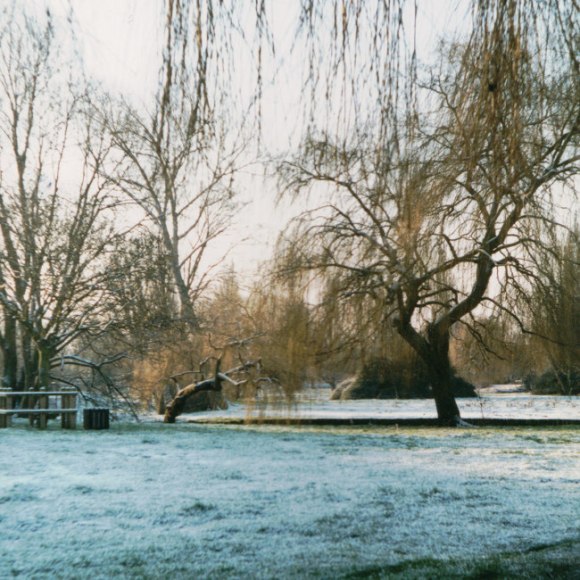
I haven’t written about my time at Cambridge for various reasons, including a sense that my experience 20 years ago probably isn’t relevant today – that the weird world of public school rituals, boating clubs and silly gowns was fading then and so must surely have completely disappeared by 2017.
Only, it turns out, it hasn’t, so here’s how it went for me.
I grew up working class, mostly on a council estate in Somerset, and went to a comprehensive that was very near the top of the Ofsted Hard as Nails League Table. From there, I was one of a handful of kids who went on to do A levels at the local sixth-form college. There, rather to my surprise, I continued to do well academically and was identified as Oxbridge material by an ambitious college administration. They put all of us swots into special coaching sessions run by an inspirational lecturer, the son of a Nottinghamshire miner who went to Oxford in the 1970s and kept a bust of Lenin on the desk in his classroom. When he told us that, yes, Oxbridge was full of weird posh people but, no, that didn’t mean we should avoid it, it carried weight. We had as much right to be there as anyone else; we shouldn’t let them keep the best stuff to themselves out of fear or misplaced humility.
It all felt as if it happened by accident, to be frank – just a matter of taking what was for me the easiest path, filling in the forms that were put in front of me, tackling one hurdle at a time. I got an interview which took place on a frosty winter day and gave me my first taste of the problems I would have later. I was told to wear a suit, which meant finding the money to buy one; and we couldn’t afford a hotel, even if had been the kind of people who even thought to stay in them. (A reminder: the bar for ‘expensive’ is low when you have bugger all.) So Dad drove through the night and I arrived angry and exhausted at breakfast-time.
The other interview applicants were somewhat reassuring. There were a couple of northerners with proper accents who seemed as anxious as me, and several people who, although clearly Home Counties middle class, had a relatably similar comprehensive-n-college background to mine. The interviews, which seemed almost designed to sabotage people like me, went well, partly thanks to the preparation I’d had at sixth-form, and partly through adrenalin. I remember arguing slightly too vigorously with a pair of terrifying college fellows that Eastenders was as interesting as Wordsworth and that the half-rhymes were the most interesting thing in Wilfred Owen’s poems. It turns out they like this kind of thing – ‘independent thought’ – and so that was that, I was in.
* * *
What people sometimes fail to understand about growing up working class – or at least as I experienced it in the 1980s and 90s – is how scared and innocent it can leave you in some important ways, even if you seem bullish and practical in others. Public transport is expensive so you don’t take it, which is how I got to the age of 18 being unsure how to use trains or buses. I could count the number of times I’d eaten in restaurants on one hand, and had never eaten Chinese food or take-away curry. I’d never seen an olive, or houmous. I’d only been abroad once, on a three-day educational trip to Brussels sponsored by the EU. I didn’t know what ‘smart casual’ meant, or that Earl Grey tea is supposed to taste like Fairy Liquid. I didn’t realise that it was frightfully vulgar to discuss money or politics, or how to make polite small talk over glasses of wine. By contrast, all the upper- and middle-class kids I met in my first week seemed like globetrotting sophisticates: they’d had gap years, spoke multiple languages, and seemed to have been trained in cocktail chat and advanced canapé consumption techniques.
Things only got worse when I realised that there was a tier above this – the blazer-wearing rugby and rowing sorts who were so posh they didn’t even have to pretend to be pleasant or polite, and could behave more or less however they liked. I spent several years just flat out avoiding them, scurrying round the edges of the College, hoping I wouldn’t encounter a drunk member of the pride enraged by, say, a complicated door mechanism, or the complexities of operating a kettle.
Money was a persistent problem, even in those tail-end days of grants. I tried to live off a pound a day, not wanting to tell my parents I needed more cash because they didn’t have it, and having been told by the College not to do any part-time work under any circumstances. So in my first term I lost about two stone and was constantly hungry. (This seems insane now I see it in black-and-white but it’s true.) I eventually cracked and told my tutor that I was getting a job and they could stick it if they didn’t like it, which magically unlocked a bursary fund, after a brief round of mildly humiliating means testing which required my parents to provide copies of their bank statements. Even that only covered living, with nothing left over for having fun. That wouldn’t have been so bad if the rich kids hadn’t been having lots of very loud, visible fun all around me – weekends away, parties, restaurant dinners, fancy clothes, and skiing holidays paid for with their loans ‘because my Dad says I might as well take it, given the low rate of interest’.
(Some of this is probably on me — I am capable of having absolutely no fun under almost any circumstances.)
But the hardest thing was that oppressive sense of cultural alienation. I had a meltdown about this at one point and, in desperation, unloaded in near hysterics during what was meant to be an academic supervision. I chose the right teacher to talk to – someone who had come to Cambridge from Africa and had an experience far more stressful and bewildering than mine. “The whole place is designed to make you feel like an outsider,” he said, with uncharacteristic feeling. “Everything they do, all the rituals and manners, even the way the buildings are designed, is intended to exclude people like us. Do not let them achieve what they want.”
I never stopped feeling like an oik – someone once loudly mocked me for cutting a slice of brie the wrong way, which is the elevator pitch version of my time at Cambridge – but I did eventually stop thinking it was my fault.
I learned to spend as much time as possible away from the College, wandering around reassuringly normal housing estates outside Cambridge, or sitting on benches at the Grafton Centre, which felt a bit like being in my home town. This wasn’t homesickness — it was pining for the real world, and a reminder that it was that lot inside the College walls who were the freaks, not me. I found friends who didn’t make me feel like shit because I didn’t know which way to pass the port, and who liked sitting around drinking tea while we listened to records — something I could afford.
I left with a good degree (having no fun meant I had time to read all the books and revise), a certain confidence in the quality of my intellect, and several important relationships that are still going strong today.
Other than that, I don’t feel like a ‘Cambridge man’, or have lingering affection for my College. I don’t have any ties or scarves, have dodged every reunion to date, and when the College kept bothering me for money I asked them firmly to stop phoning, emailing and writing. Our business with each other, as far as I’m concerned, concluded the day I walked away with my degree. Cambridge is an ex I dumped after a long, dysfunctional relationship.
So, when young people from similar backgrounds to mine ask if they should go to Cambridge, I find it hard to give a straight answer. One the one hand, not going is a kind of surrender – letting them have it all to themselves – and if it’s not quite world-as-oyster dream I was sold I guess my degree did get me as far as interview stage for my first couple of jobs after university. At the same time, I feel duty bound to be honest with them about my experience, so at least they’ll know what they’re getting into.
Cambridge is what Cambridge is.

8 replies on “Cutting the Brie the Wrong Way”
What is the right way to cut brie?
LikeLike
If I’d been able to work that out I’d probably be Prime Minister now.
LikeLike
Blimey, some people really do care about such things: “To cut a portion from a wedge of Brie, always cut along the length of the wedge. Do not cut a communal wedge of brie widthwise. Taking the point for yourself, or “pointing the brie,” is considered a social faux pas.”
LikeLike
Oh, yeah — that’s what I did.
LikeLike
Fabulous! I feel horrible for you and how you are not Canadian in this sense only (and only this) – we have an extra defense mechanism. We have plenty of rich and some very rich but we have very very few immune from the “you are not capable in all situations” accusation. My capability included working 40 hrs a week outside of college as well as at summers. At undergrad (a bit of a stuffy crusty high Anglican place called Kings College from 1981 to 1985) we had Latin and gowns but we also had an egalitarian majority who those with names of beer companies (Labatt) or frozen food empires (McCain) had to cope with. Law (LLB and Bar Society course (88-92) was the same. No one had the ultimate upper hand. So… your response seems entirely logical and correct. Screw em all. I am charmed by the money calls from my third university, Strathclyde where I got my LLM around 2000. I never give them money but I listen and ask how the weather is in Glasgow.
LikeLike
That’s a very interesting post. I wonder though if Cambridge is the same today.
Also, although snobbery has marred British social relations for centuries, what is most important about Cambridge or any institution of higher learning worth its salt is the academic excellence there. This means not just for scientific and technical arts but the values implicit in what was called Western civilization. Britain with Europe renewed those values via key institutions such as Cambridge.
It’s not the games, not the clubs, not the ties or any of the (relative) folderol of centuries that is important. Placing undue emphasis on trivia creates an inversion of values which if pronounced can destroy the country. It almost did in the 1930s.
Those who spend time watching how others cut cheese miss the point, chaps.
Gary
LikeLike
[…] on, at university, it was a way of feeling in control of a distressing situation. Scrubbed clean, dressed and out of the door every morning before many of my peers had even thought […]
LikeLike
[…] For the first twenty years of my life, I was steeped in my working classness, even through four years at a not-very-working-class university. […]
LikeLike